




| Broad-bodied Chaser (Libellula depressa (Linnaeus, 1758)) |





|
|
Scientific name: Libellula depressa (Linnaeus, 1758) Common name: Broad-bodied Chaser French name: Libellule déprimée Order: Odonata Suborder: Anisoptera Family: Libellulidae Wingspan: 76 mm Biotope: The larvae develop in stagnant or slow-running water, usually small size ponds, swamps etc. Adults live in the neighbourhood but also move a lot. They can be met far from water, in woodlands, forests and gardens. Geographic area: Europe, Near East and Central Asia. Flight time: Late April to early August. |
The Libellula depressa got its name from its, broad and short, flattened abdomen with small yellow spots on the sides. Mature males are pale blue, females and immature dragonflies are yellowish-brown. The base of the 4 wings of Broad-bodied Chaser have a dark brown patch that allows to differentiate them from other species. The eyes are brown. The larvae develop in stagnant water during 1 or 2 years. |
| [To know more about the Broad-bodied Chaser] [Next picture] [Top] |
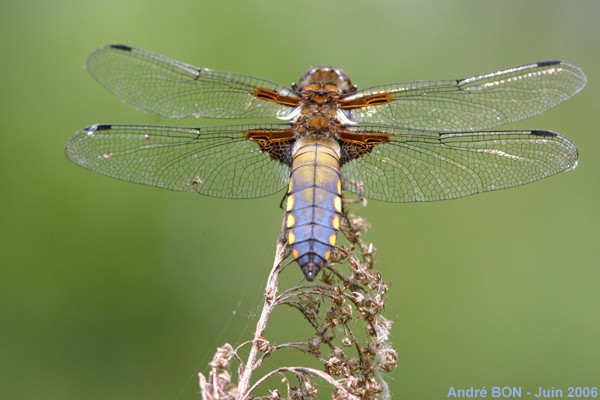
|
This male Broad-bodied Chaser has a beautiful pale blue colouring. The 300mm lenses with image stabilization is an ideal tool to take pictures of dragonflies. |
| [To know more about the Broad-bodied Chaser] [Next picture] [Previous picture] [Top] |
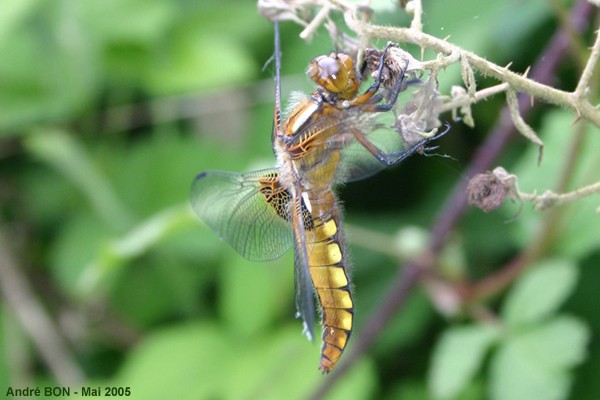
|
I found this dragonfly, perched on a Bramble bush, while I was looking for butterflies. It staid totally immobile and I could get a few centimetres away from it. |
| [To know more about the Broad-bodied Chaser] [Next picture] [Previous picture] [Top] |
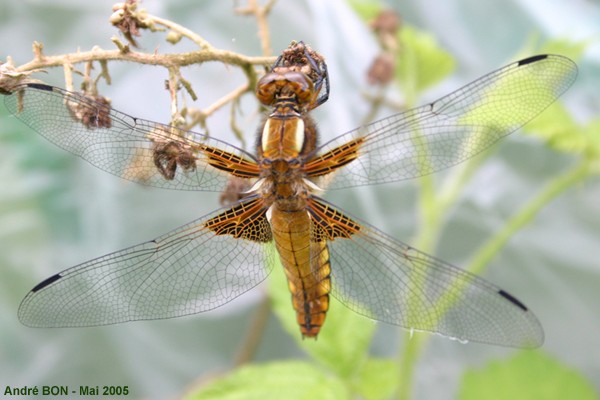
|
In order to improve the visibility of the dragonfly I put a supermarket plastic bag in the background. Of course I left, leaving the plastic bag in the Nature. No, I am joking. I am even sure that the picture would have been better with a biodegradable bag. |
| [To know more about the Broad-bodied Chaser] [Next picture] [Previous picture] [Top] |
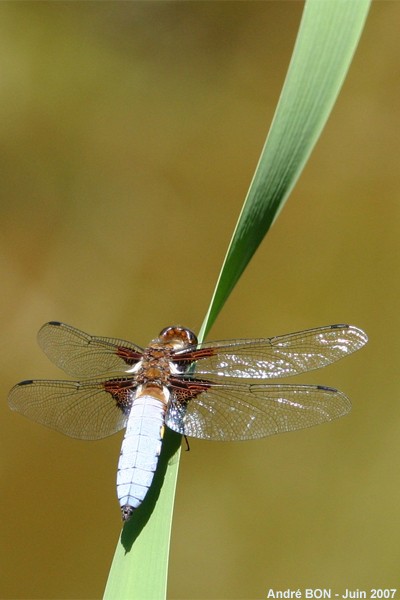
|
This twisted reed appeared to be interesting for the picture composition. But, under the noon sunlight, the body of this dragonfly is a little overexposed. |
| [To know more about the Broad-bodied Chaser] [Previous picture] [Top] |
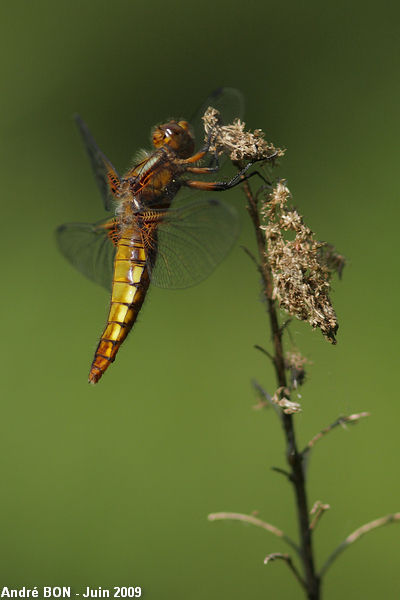
|
Taking pictures of Broad-bodied Chasers is rather easy. You need to find a perching support and quietly wait just next to it. They are used to regularly coming back. |